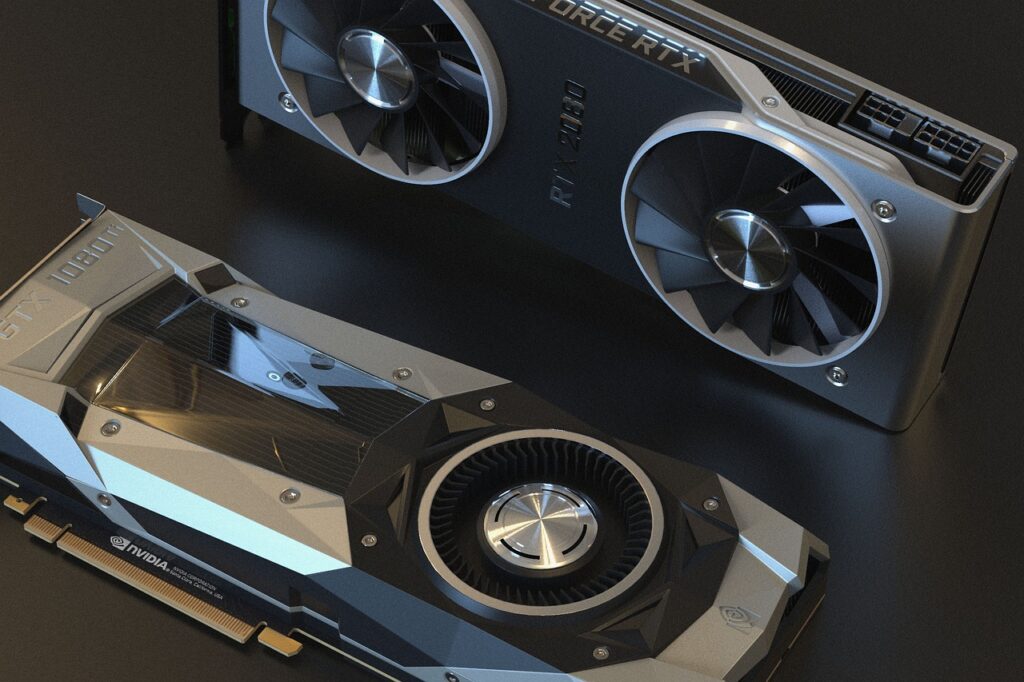How Do I Choose A Case For My Gaming PC?
Are you ready to embark on an epic gaming adventure but unsure of how to choose the perfect case for your trusty gaming PC? Look no further! In this article, we will guide you through the intricate world of PC cases, providing you with essential tips and considerations to help you make the best decision for your gaming setup. From optimal airflow to accommodating graphics cards, we’ve got you covered. So, grab your keyboard and mouse, and let’s find that perfect case for your gaming PC!

Consider the Size of the Case
When choosing a case for your gaming PC, one of the first factors to consider is the size. The size of the case will determine not only the overall footprint of your system but also the compatibility with the components you plan to install.
To begin, you need to determine the form factor of your motherboard. Whether it’s ATX, micro-ATX, or mini-ITX, knowing the form factor will help you choose a case that fits your motherboard perfectly.
Next, you should measure the available space for the case. Consider the dimensions of your desk or gaming area and ensure that the case will fit comfortably within that space. It’s essential to leave some room for airflow and cable management.
Lastly, think about the number and size of components you plan to install. If you’re aiming for a high-performance system with multiple graphics cards, liquid cooling setups, and plenty of storage drives, you’ll need a larger case with enough room to accommodate everything without overcrowding.
Choose the Material and Design
The material and design of your gaming PC case play a significant role in the overall aesthetics and performance of your system.
When it comes to material, you typically have two options: steel or aluminum construction. Steel cases are generally more affordable and provide better protection against scratches and dents. On the other hand, aluminum cases are lighter, offer better heat dissipation, and can provide a sleek and modern look to your setup.
Beyond the material, you should also consider the design and aesthetics of the case. Some cases feature tempered glass side panels to showcase your components, while others may have LED lighting or unique exterior designs that cater to specific themes. Choose a design that matches your personal style and complements the overall look of your gaming rig.
Additionally, evaluate the airflow and ventilation options offered by the case. Look for cases with adequate airflow and ventilation options to keep your components cool, especially if you plan to overclock your system. Good airflow can make a significant difference in maintaining optimal temperatures and preventing thermal throttling.

Check for Expansion and Compatibility
As a gaming enthusiast, you’ll likely want to have the flexibility to upgrade and expand your system as time goes on. To ensure this, you need to check for expansion and compatibility features when selecting a case for your gaming PC.
First and foremost, ensure compatibility with your chosen motherboard. Check if the case supports the form factor and socket type of your motherboard. Additionally, make sure there is enough clearance for the CPU cooler and RAM modules.
Next, consider the number and type of expansion slots available. If you plan to install multiple graphics cards, check for support for SLI or Crossfire configurations. Also, assess the availability of expansion slots for other peripherals like sound cards, Wi-Fi cards, or capture cards that you might want to add in the future.
Furthermore, evaluate the number and type of drive bays available in the case. If you have a large collection of games and media files, having multiple drive bays for SSDs or HDDs will be essential.
Evaluate Cooling Options
Cooling is crucial for any gaming PC, as high-performance components generate a significant amount of heat. When choosing a case, you need to evaluate the cooling options it offers.
Firstly, check if the case comes with any pre-installed fans and note their size. More fans generally mean better airflow and cooling potential. Additionally, make sure the case has enough fan mounting points if you want to add more fans.
If you’re looking for even better cooling performance, consider a case that offers liquid cooling support. This allows you to install a liquid cooler for the CPU or even a custom water cooling loop for the GPU. Look for cases with sufficient radiator mounting points and compatibility with your chosen cooling solution.
Besides the number and type of fans, also evaluate the airflow design of the case. Look for features like well-placed vents, dust filters, and proper cable management options that promote efficient airflow throughout the case. Good cable management can prevent obstructions and ensure airflow isn’t hindered by tangled cables.

Assess the I/O Ports and Connectivity
The I/O ports and connectivity options of your gaming PC case are essential for seamless integration with your peripherals and other devices.
Ensure that the case has all the necessary USB ports for connecting your keyboard, mouse, and other peripherals. Consider the type and number of USB ports available, as well as any additional ports like USB-C or Thunderbolt for faster data transfer rates.
If you plan to use your gaming PC as a media center, check if the case offers additional connectivity options like HDMI or DisplayPort for connecting it to a TV or monitor.
Furthermore, evaluate the location and accessibility of the ports. Having front-panel ports can be convenient for plugging in USB drives or headsets, allowing easy access without having to reach behind your PC.
Consider Noise Reduction Features
A quiet gaming PC can greatly enhance your gaming experience and overall enjoyment of your system. When selecting a case, it’s worth considering noise reduction features.
Check if the case includes noise-dampening materials such as insulation foam or rubber grommets. These materials can help absorb and reduce fan and component noise, resulting in a quieter system.
Additionally, evaluate the effectiveness of fan noise reduction. Some cases employ technology like fan filters, vibration dampeners, or low-noise fans to minimize noise levels.
Consider the location of the case in your setup as well. Placing your gaming PC under a desk or in an enclosed area can help muffle the noise further.
Evaluate Cable Management
Proper cable management not only improves the aesthetics of your gaming PC but also has practical benefits. It allows for better airflow and easier component maintenance.
Check if the case offers cable routing options, such as routing holes or grommets behind the motherboard tray. These features enable you to route and hide cables neatly, giving your system a cleaner and more organized look.
Consider the availability of cable tie-down points or Velcro straps to secure and manage cables. These features make it easier to keep cables in place and prevent them from obstructing airflow or interfering with other components.
Evaluate the ease of managing and concealing cables within the case. A well-designed case will have ample space and thoughtful cable management options, making it easier for both novice and experienced builders to achieve clean cable layouts.
Assess the Build Quality and Durability
The build quality and durability of your gaming PC case are important factors to consider, especially since gaming rigs can be quite an investment.
To gauge the build quality, read reviews and feedback on the brand and model of the case you are considering. Other users’ experiences can provide valuable insights into the case’s construction, materials used, and overall sturdiness.
Additionally, evaluate the thickness and sturdiness of the case materials. Thicker metal panels can offer better structural rigidity and durability, ensuring your components are well-protected.
Consider the reputation of the manufacturer for quality products. Brands with a track record of producing reliable and durable PC cases are more likely to provide you with a high-quality product.
Consider Future Upgrades and Expansion
When choosing a case for your gaming PC, it’s important to consider your future upgrade and expansion plans. A well-chosen case can accommodate and facilitate future hardware additions or replacements.
Check for additional available drive bays and expansion slots. Having extra drive bays allows for the addition of more storage drives as your needs grow. Similarly, having spare expansion slots ensures you can add new components in the future without limitations.
Evaluate the compatibility with future hardware upgrades, such as larger graphics cards or more powerful CPUs. Ensure that the case provides enough clearance and space to accommodate these upgrades without any issues.
Consider the ease of accessing and replacing components within the case. A case with tool-less or removable drive cages, easily removable side panels, and well-designed interior layouts can make future upgrades or maintenance tasks much more straightforward and hassle-free.
Set a Budget and Compare Prices
Lastly, before making a final decision on your gaming PC case, you should set a budget and compare prices across different brands and models.
Determine your budget for the gaming PC case based on your overall system budget. It’s crucial to strike a balance between features, quality, and your budget constraints.
Research and compare prices of different brands and models within your budget range. Look for sales or discounts that may be available, especially during holiday seasons or special promotions.
Consider the overall value for money based on both the features and the quality of the case. While it’s tempting to opt for the cheapest option available, remember that a well-designed and durable case can last through multiple system upgrades, maximizing its long-term value.
By considering these factors and thoroughly evaluating each aspect, you can confidently choose a case for your gaming PC that not only meets your needs but also fits your style and budget. Happy building!




